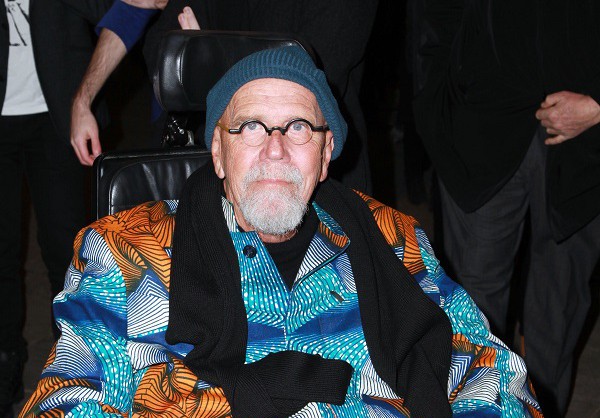Analysis
Will Christie’s Stop Selling Expensive Art in California?
Court strikes a clause in the California Resale Royalties Act.

Court strikes a clause in the California Resale Royalties Act.

Eileen Kinsella

A California appellate court ruled Tuesday that the California Resale Royalties Act, which allows artists to get a cut when auctioneers including Christie’s, Sotheby’s, and eBay, resell their work, is unconstitutional. While it struck down a clause in the act, the court says that the offending part can be removed.
In an “en banc” decision, made by a fuller panel of judges, of the 9th circuit of the U.S. Court of Appeals, the court held that clause of the act that regulates sales of fine art outside the state “facially violates the dormant Commerce Clause,” according to the opinion. According to the law, a fine art seller has to pay a 5 percent royalty on work sold for more than $1,000 “if the seller resides in California or the sale takes place in California.”
“If a California resident has a part-time apartment in New York, buys a sculpture in New York from a North Dakota artist to furnish her apartment, and later sells the sculpture to a friend in New York,” wrote judge Susan P. Graber in the opinion for the court, “the Act requires the payment of a royalty to the North Dakota artist—even if the sculpture, the artist, and the buyer never traveled to, or had any connection with, California. We easily conclude that the royalty requirement, as applied to out-of-state sales by California residents, violates the dormant Commerce Clause.”
However, the court remarked that that the “invalid clause” is severable from the rest of the Act, indicating that the law could or should remain applicable to resales of art made within the state. The court returned the case to a three-judge panel for its consideration of the remaining issues (So called en-banc panels are often used for particularly complicated legal cases such as this).
The decision was made in a class-action suit filed in 2011 by Chuck Close and Laddie John Dill, and artists’ estates including the Sam Francis Foundation and the estate of Robert Graham against Christie’s, Sotheby’s, and eBay for allegedly violating the law.
“There are two likely aftereffects of this decision,” wrote art law expert Nicholas O’Donnell on his blog. “Galleries and auction houses can put any concerns to rest about sales in New York in particular, but one has to wonder about the effect it will have on putting items for sale in California, which will effectively have a premium not present in other states.”
The roadblock comes just weeks after other legislators reintroduced similar efforts to ensure resale royalties on artwork in New York (see Jerrold Nadler Leads Renewed Push for US Artist Resale Royalty Rights and New York Representative Jerrold Nadler Slams Christie’s and Sotheby’s).
The artists and their estates allege, according to the opinion, that Christie’s, eBay, and Sotheby’s “violated the California Resale Royalties act by failing to pay mandatory royalties on sales of fine art.” The resale act requires the seller of fine art to pay the artist a five percent royalty if the seller resides in California or the sale takes place in California.
Judge Stephen Reinhardt, part of the 11-judge panel, concurred with the majority’s conclusion that “under the Supreme Court’s dormant Commerce Clause jurisprudence, the out-of-state regulation of out-of-state entities was unconstitutional, and therefore the auction house defendants could not be subjected to the Act’s obligations required of them in connection with sales that take place outside of California.” Reinhardt “dissented from the majority’s extension of the dormant Commerce Clause to declare a substantial portion of the Act unconstitutional.”
Just a few weeks ago, three U.S. Congressmen—Jerrold Nadler and senators Edward Markey (D-Mass.) and Tammy Baldwin (D-Wisc.)—resubmitted the ART Act, which they say would support artists by allowing them to get a cut when their artworks sell at an increased value at public auction. The ART Act would provide a resale royalty of five percent of the sales price, up to $35,000, for any work of visual art sold at auction for $5,000 or more. The royalty would apply only to auctioneers that have sold at least $1 million worth of visual art during the previous year (See US Lawmakers Give Artist Resale Rights Another Look and No Artist Resale Rights for US, For Now).